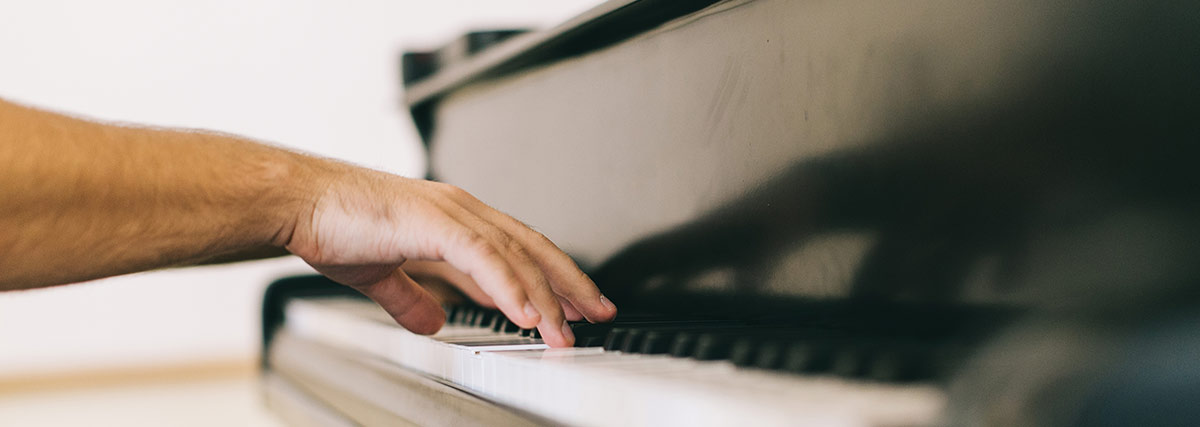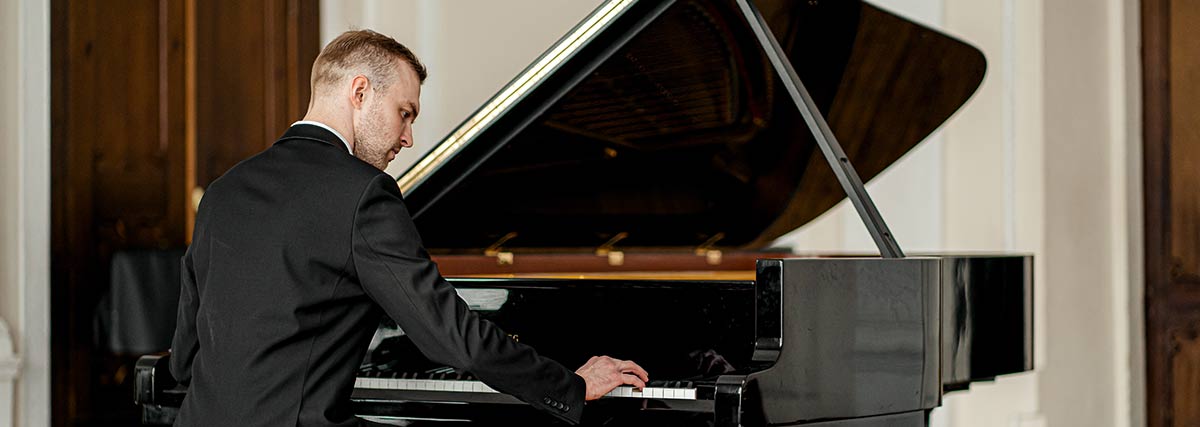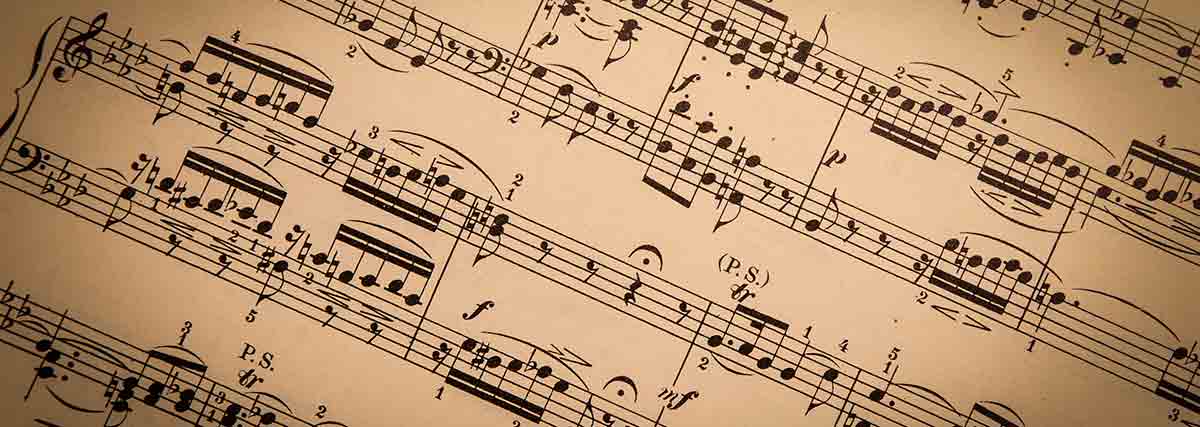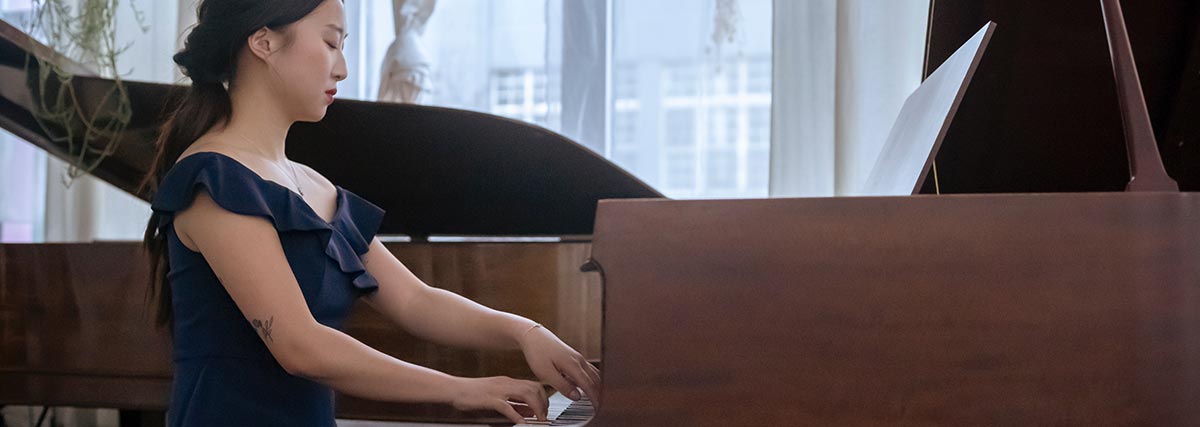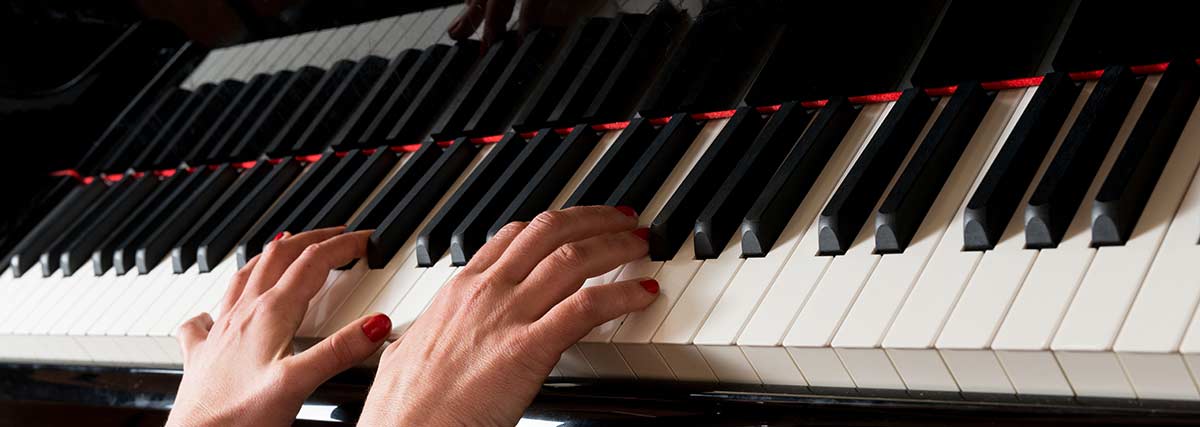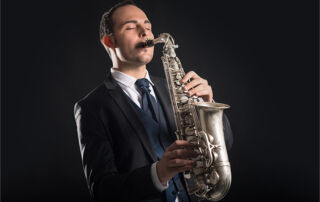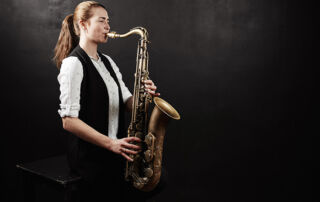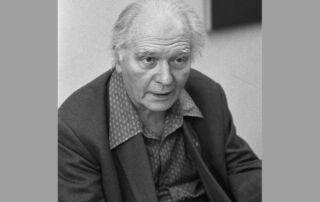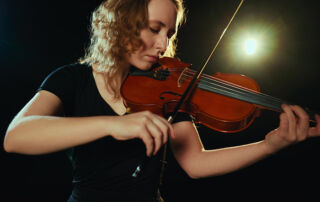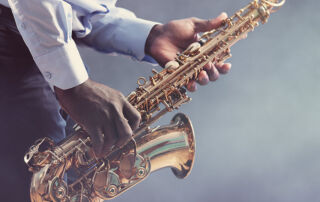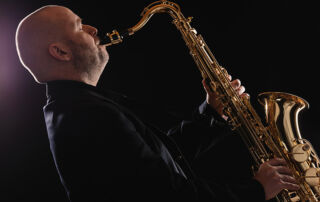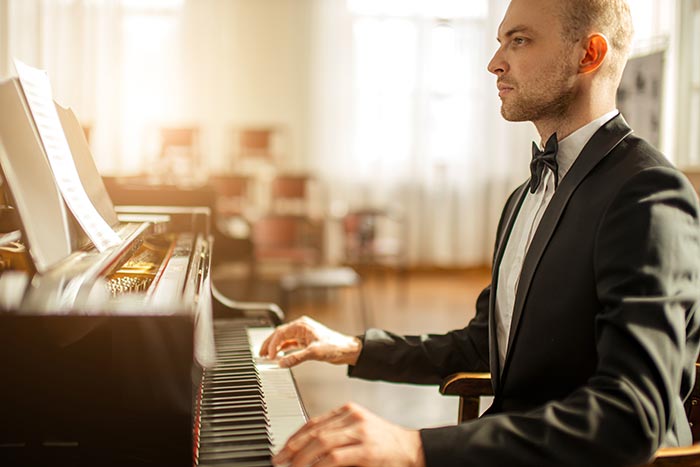Learning to play classical piano as an adult is a wonderful as you have the maturity to appreciate the full meaning of each composition, as well as the physical power to produce the intense sound quality required by some compositions.
You can certainly understand the differences between each period thanks to your knowledge of history and your can understand (conceptually) the interpretation of piano works written during the Baroque, Classical, Romantic or Modern periods.
You may already have musical preferences, such as working on compositions by Bach, Beethoven, Mozart, Schumann, Chopin, Rachmaninoff, Debussy, Ravel or Stockhausen. This is great, as it will help your piano teacher to choose the pieces that best suit your musical tastes!
As an adult beginner who wants to learn classical piano, you will be introduced to note reading. To focus on the melodic meaning of a composition as a classical pianist, you need to be able to read music as quickly as you read a novel in your native language, skipping this first step can be detrimental. Learning a new piece could be extremely difficult if you don't have the ability to read the musical notes at the "speed of light" and instantly identify them with the piano keys. It is like trying to understand Baudelaire while having to decipher every letter and word.
You will also learn about rhythms, musical indications, tempi and dynamics. In short, you will learn to read and understand all the information contained in a musical score.
You will also practice technical exercises as part of your classical piano study to increase your dexterity and ability to meet any musical challenge. You will also work on additional exercises to help you improve your sound production.
Playing the piano is a wonderful art that requires the development of certain technical skills in order to bring forth the most important element of a composition: conveying the deeper meaning of the work to an audience.
I believe it is essential to invest time in developing a solid foundation in order to master all elements of piano playing. Skipping steps and trying to run before you can walk will result in terrible piano technique and an inability to enjoy and work on your favourite piano compositions.
It takes time to learn and master classical piano. Therefore, to achieve your goals, you must study piano seriously and with the utmost dedication!
Even if you aspire to play Bach's Goldberg Variations, Mozart's 21st Concerto, Chopin's First Ballad or Debussy's Masques et Bergamasques, I urge you to take your time and recognise that playing these magnificent pieces of the repertoire is not as simple as one two three.... To do so, you need to develop a variety of complex skills, and this can only be achieved through hard work and great piano education.
In my work as a piano teacher, I often met people who were beginners at the piano but expected to be able to play some of the most difficult compositions in no time. They would try to skip most of the steps and use "tricks" to achieve their goals. Unfortunately, their tricks did not work as planned! They were always discouraged and ended up giving up piano playing altogether.
It is terrible to see such failures when these piano lovers had high goals and a real passion for the instrument. It's heartbreaking, but I have to say that they have engineered their own disappointment. I doubt they would have done the same if they were studying a foreign language. If they had done so, they would have aspired to be fluent in a language while refusing to expand their vocabulary, learn grammatical principles and improve their pronunciation.
Don't be a pretentious monkey. Breaking the rules won't work, and the rules will most certainly break you!
If you want to become a competent classical pianist, you need to practice regularly and give yourself a few years to reach your goals. There are no shortcuts.
Je vous recommande également de prendre des cours auprès d’un bon pianiste classique ayant des années d’expérience dans l’enseignement aux adultes. Tenter d’apprendre par soi-même n’est pas une bonne idée, car, pour réussir, vous devrez bénéficier des informations et de la structure fournies par un professionnel.
The help and advice of an excellent piano teacher is necessary because he or she will know which way to go at each stage of your progress. A great piano teacher will quickly identify your skills and limitations and know how to help you progress quickly. He or she will spot the areas that need the most attention and choose the most appropriate exercises or pieces for you at your level of learning!
I think it is also essential to get regular feedback, as it can be difficult for you to assess whether you are on the right track. I have often met amateur pianists who have started to learn on their own or who have returned to the piano after a long break. They tried to judge themselves, but they were frequently wrong. They thought their performance skills were poor when in fact they were superb, but their technical skills were quite poor.
As I said before, playing the piano is a fantastic activity that will undoubtedly bring you a lot of joy, but you have to learn it properly to enjoy it. Otherwise, you risk developing bad habits, going in the wrong direction and ending up extremely discouraged.
Voici mon dernier conseil : si vous voulez apprendre le piano classique, faites-le bien. Prenez des cours de piano classique et tenez compte de toutes les recommandations de votre professeur. Même si vous êtes parfois frustré et que vous souhaitez atteindre le sommet plus tôt que tard, je vous promets que la patience est essentielle. Vous atteindrez sans aucun doute vos objectifs et deviendrez l’excellent pianiste classique que vous avez toujours désiré si vous étudiez avec soin et constance !

